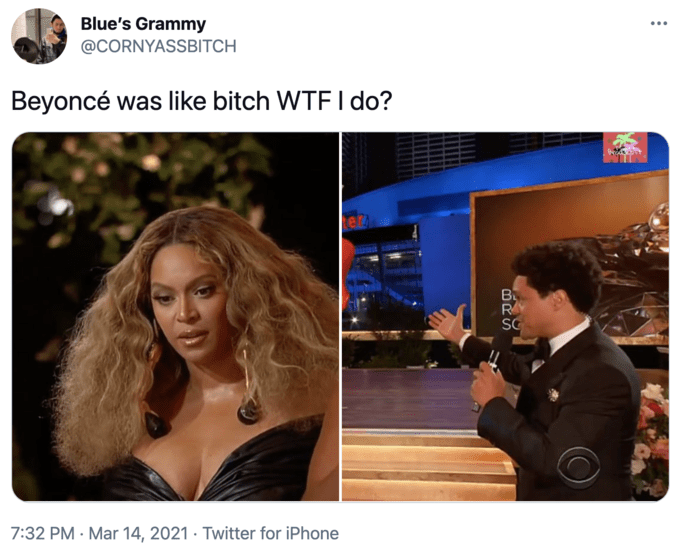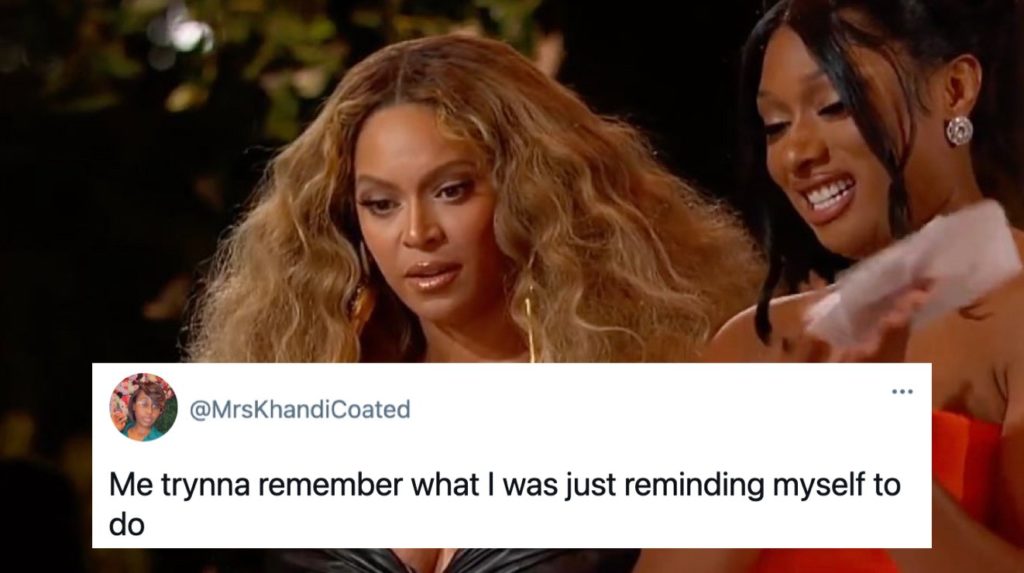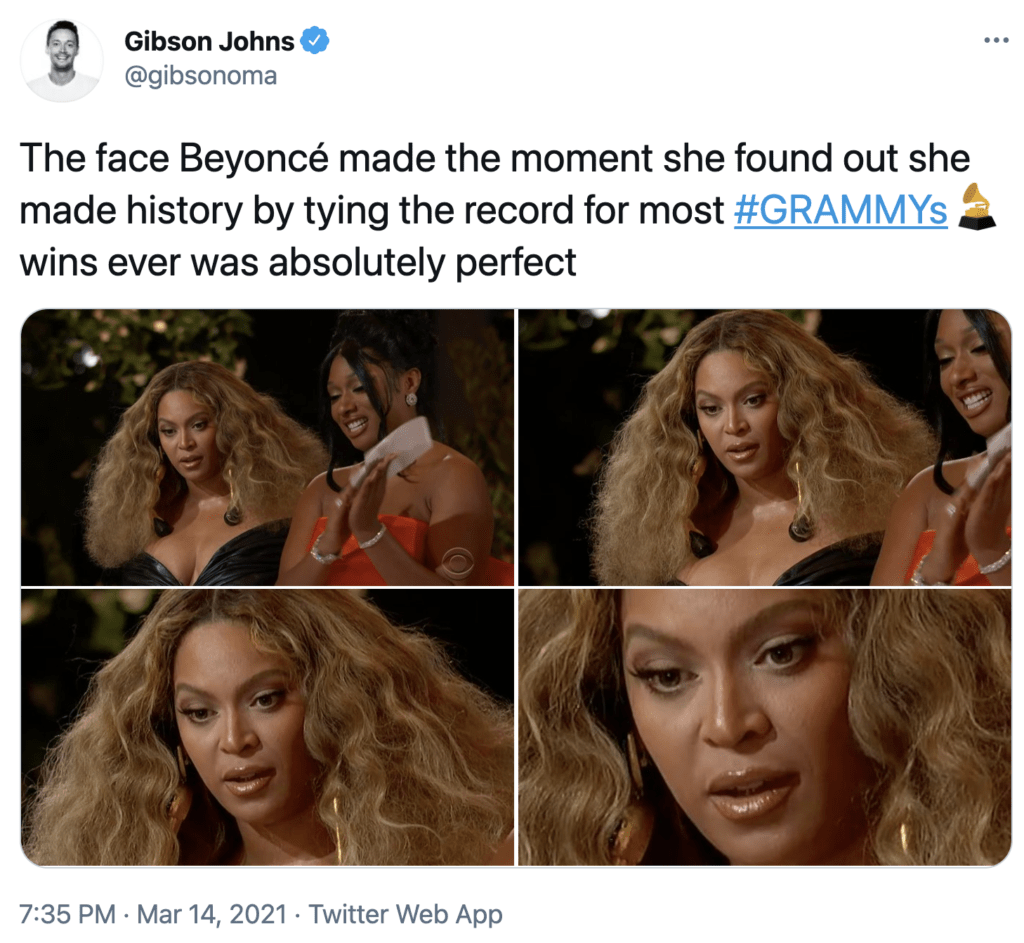Beyonce May Have Made History, But the Best Awards Are Still Reserved for White Artists
‘Many Black artists like Beyonce remain trapped in the narrative of being an “R’n’B” or “Hip Hop” award-winning artist only.’
Contribution by Banseka Kayembe.
This year’s Grammy Awards was, as expected, a lot more lowkey than usual. The pandemic-style ceremony was set outside, with artists seated at a socially distanced length, donned in masks, and had pre-recorded musical performances instead. The resonating image from the night was Beyonce, who aside from looking inhumanely incredible, arms filled with her award-takings for the evening, quickly became meme-ified for her hilarious reactions to some of the night’s events.
Her perplexed face on the steps of the stage, as host Trevor Noah awkwardly interrupted Megan Thee Stallion’s win to announce Beyonce was now the most Grammy-awarded artist ever, probably sums up well how I feel about the frantic attempts by the Grammys to pay homage to one of the best artists of our age. Despite Beyonce’s historic achievements being almost the running theme of the evening, I couldn’t help but feel that the best awards at the Grammys are still reserved for white artists.
The conversations about poor recognition for Black artists at the Grammy’s is nothing new. When you break down the statistics, you can see the Black artists are not shut out of winning them all together- but it’s evidence that the best and most highly regarded awards are won disproportionately by white artists. The musical genius Prince, who created the amazing genre-crossing anthem Purple Rain amongst much else, has never won “album of the year”. Michael Jackson, viewed by many as the most important artist of the 20th Century has only won it once, for his phenomenal album Thriller. Taylor Swift, however, has won the coveted “album of the year” three times. 22-year-old Billie Ellish has won it twice. They are not culturally irrelevant, nor are they actively “bad” artists- but it’s unlikely they will reach the talents of Prince or Michael Jackson. It’s clear it takes a lot less for white artists to gain recognition
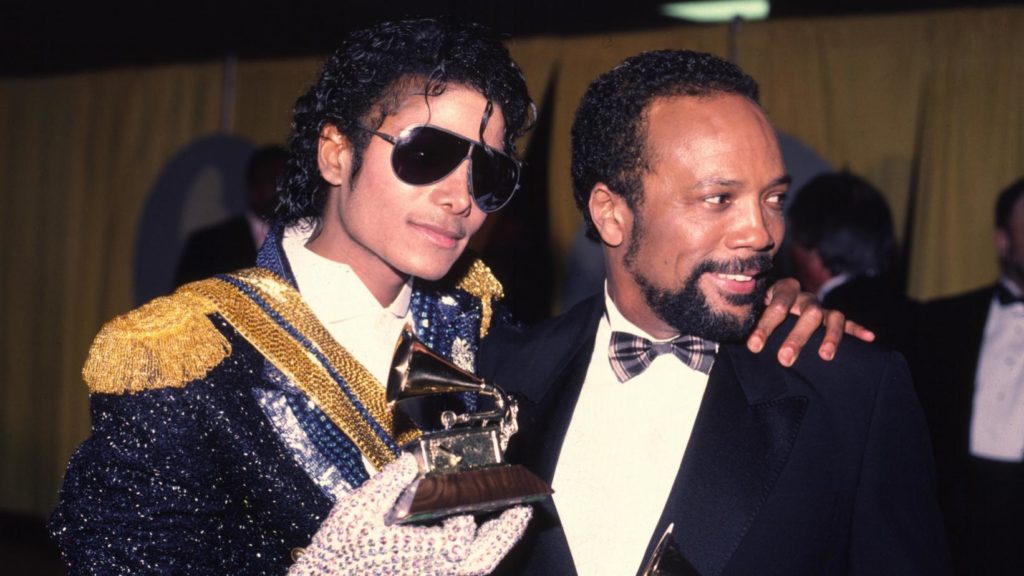
John Vilanova, a professor of journalism, communications, and Africana studies at Lehigh University is in the process of researching this disproportionality further. Vilanova argues, against the backdrop of civil rights wins like R v The Board of Education in which the Supreme Court ruled against the outright barring of Black pupils from “white schools”, the response was a rise of another kind of more subtle racism: “treating white American culture, history, values and systems as inherently superior.” It’s still white supremacy, but less obvious. Whiteness continues to dominate what is deemed as the musical cream of the crop, leaving even the most talented Black artists relatively bereft of the awards they deserve.“excellence” is a malleable concept that does not escape the lens of racism.
Over the last few years, there have been some truly painful moments, watching incredible Black artists lose out to lesser white competitors. A few years ago we witnessed Kendrick Lamar’s explosively political album “To Pimp a Butterfly”, which marked a cultural shift in racial politics that coincided with the rise of the Black Lives Matter movement, lose out to a bland album by Taylor Swift for “album of the year”. Beyonce infamously lost out on “album of the year” in 2016 for her visual love letter to Black womanhood “Lemonade”, to Adele who produced a decent but not particularly innovative album that was no doubt deemed as palatable with more mainstream appeal. My heart still hurts seeing Beyonce have to watch so gracefully, her eyes slightly wet with tears as Adele essentially conceded on stage her white privilege and that the award should have been Beyonce’s. Fast forward to 2021, and Billie Eilish does the same, spending most of her speech for winning “record of the year” saying it should have been won by Megan Thee Stallion.
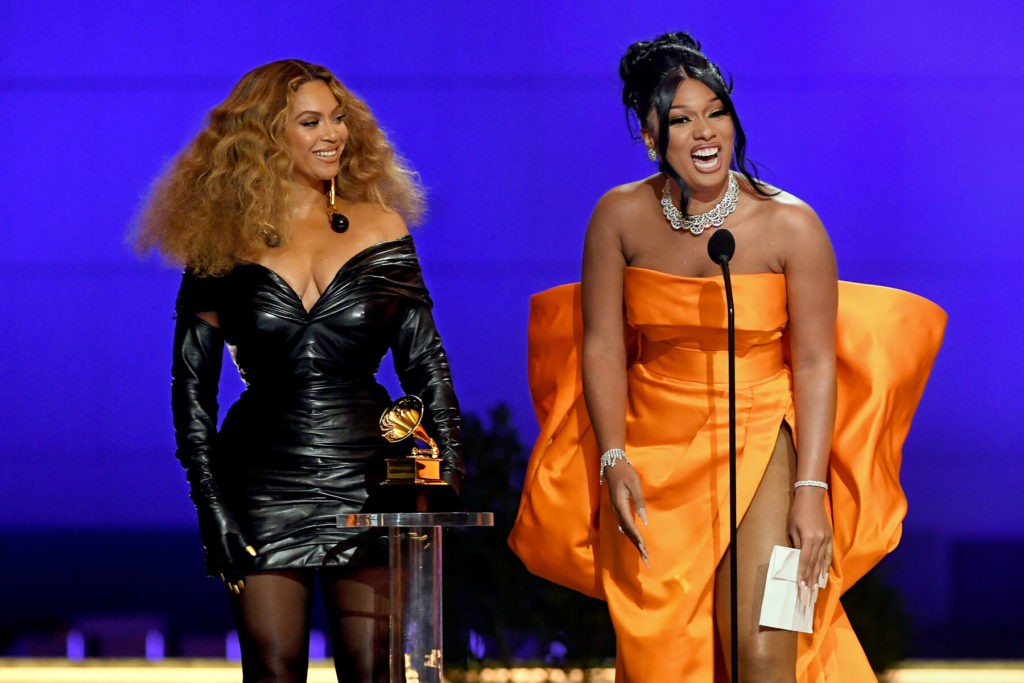
Many Black artists like Beyonce remain trapped in the narrative of being an “R’n’B” or “Hip Hop” award-winning artist only. Beyonce’s album Lemonade won the “urban contemporary album” award in 2016, despite it not being an urban album in particular; it crossed over many genres. Pushing Black artists into the urban categories is a more sophisticated way of keeping the awards racially segregated. The most converted awards which in terms of the genre are far more general become deliberately synonymous with whiteness. White culture is presented as the default and more meaningful to the “mainstream” whilst Black music (especially when done by Black artists) is pushed to the fringes. This feels completely paradoxical, given that Black culture remains hugely influential in so many ways.
In response, there have been Black artists recently who’ve refused to involve themselves with the Grammys and have stopped submitting their work to the institution. Frank Ocean stopped in 2016, and this year the ceremony was boycotted by The Weekend. P.Diddy said at the pre-Grammys gala in January that “Black music has never been respected by the Grammys…For years we’ve allowed institutions that have never had our best interests at heart to judge us. And that stops right now.”
Beyonce, and many other Black artists deserve a lot more than they are given, and the Grammys lavishing her with congratulations on her historic wins cannot disguise this. The institution cannot atone for their racial biases by performative means. If they really value talented Black artists, they’ll give them the awards they deserve.
Contribution by Banseka Kayembe.
Check out the GUAP Arts & Culture section, to discover new art, film, and creative individuals.




![ZINO VINCI’S ‘FILTHY & DISGUSTING’EP BRINGS YOU TO THE CORE OF THE ARTIST [@ZinoVinci]](https://guap.co/wp-content/uploads/2023/10/Zino-4.jpg)

